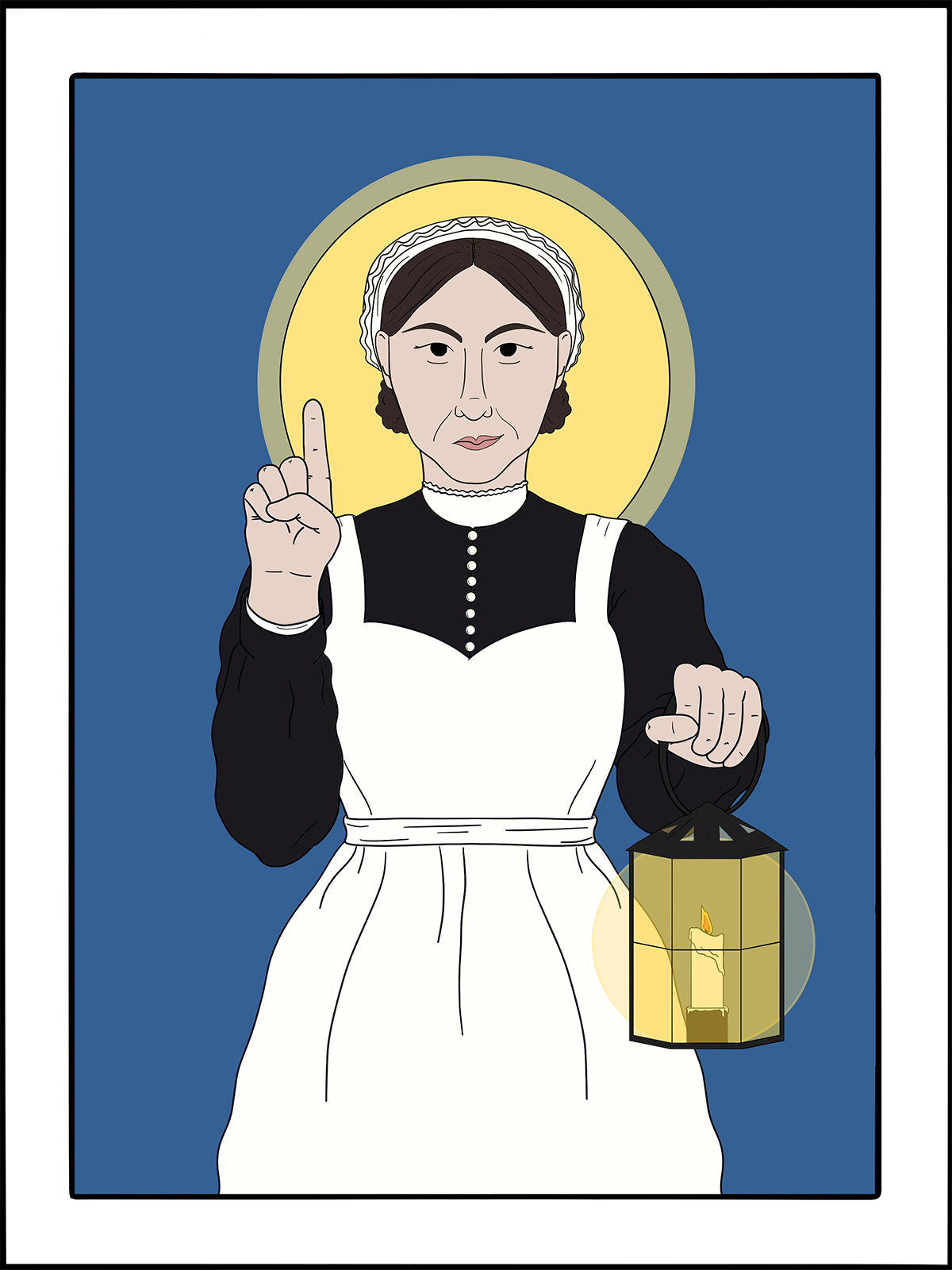
August 12
Florence Nightingale
Nurse, 1910
art by Rev. Kirsten Kohr of Geneva, Ohio O God, who gave grace to your servant Florence Nightingale to bear your healing love into the shadow of death: Grant to all who heal the same virtues of patience, mercy, and steadfast love, that your saving health may be revealed to all; through Jesus Christ, who lives and reigns with you and the Holy Spirit, one God, now and for ever. Amen.
Florence Nightingale was born to a wealthy English family in Florence, Italy, on May 12, 1820. She trained as a nurse in a hospital run by a Lutheran order of Deaconesses at Kaiserwerth, and in 1853 became superintendent of a hospital for invalid women in London. In response to God’s call and animated by a spirit of service, in 1854 she volunteered for duty during the Crimean War and recruited 38 nurses to join her. With them, she organized the first modern nursing service in the British field hospitals of Scutari and Balaclava.
Making late-night rounds to check on the welfare of her charges, a hand-held lantern to aid her, the wounded identified her as “The Lady with the Lamp.” By imposing strict discipline and high standards of sanitation, she radically reduced the drastic death toll and rampant infection then typical in field hospitals. She returned to England in 1856, and a fund of £50,000 was subscribed to enable her to form an institution for the training of nurses at St. Thomas’s Hospital and at King’s College Hospital. Her school at St. Thomas’s Hospital became significant in helping to elevate nursing into a profession. She devoted many years to the question of army sanitary reform, to the improvement of nursing, and to public health in India. Her main work, Notes on Nursing, went through many editions.
An Anglican, she remained committed to a personal mystical religion, which sustained her through many years of poor health until her death in 1910. Until the end of her life, although her illness prevented her from leaving her home, she continued in frequent spiritual conversation with many prominent church leaders of the day, including the local parish priest, who regularly brought the Eucharist to her. By the time of her death on August 13, 1910, her accomplishments and legacy were widely recognized, and she is honored throughout the world as the founder of the modern profession of nursing.
Excerpted directly from “Lesser Feasts and Fasts 2022,” p. 356-357.

